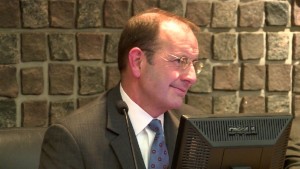I’m going to get something off my chest right off the top.
The person I wanted the Amarillo City Council to select to join its ranks didn’t make the cut; he’s not one of the five finalists chosen from a pool of 14 applicants.
Given that his name already is out there, I will just tell you it was Cole Camp. He’s the one I was hoping would get the job. He’s a friend of mine who, in my view, would have served with great distinction.
OK. That’s out of the way.
Now, about the selection process, which is a most fascinating departure from what has been the norm at City Hall. In the past, council members would solicit replacements privately, consider the individuals who’d expressed interest, meet and then announce the selection to the public. That’s what happened a couple of years ago when Councilman Jim Simms died and the council appointed Ron Boyd to serve until the next municipal election.
Council members are going to interview the five finalists — all fine folks, I’m sure — in public. They’re going to ask them questions prepared in advance. Each candidate is going to have 30 minutes to answer them.
Then the council members will consider their selection. The person they pick will succeed Dr. Brian Eades, who’s leaving the council this summer when he moves to Colorado. I presume they’ll declare it to be a “personnel discussion,” so they’ll have that deliberation in private, in executive — or closed — session.
You know what? With all this talk about “transparency,” I wonder why council members need to have that discussion in secret. It they were discussing, say, the job performance of a senior administrator and were considering terminating that individual, I get how that would qualify as an exemption under the Texas Open Meetings Act.
Selecting a City Council member, though, doesn’t qualify as a “personnel” matter in that context. They’re selecting someone who would answer to the council’s constituents. That would be about, oh, 200,000 of us who live here. Many of us pay property taxes that fund city government.
Why not open the process the rest of the way, to allow us to hear from the elected governing council how they’re deliberating? What factors are they considering as they ponder this important decision?
One of the aspects of the Texas Open Meetings Act that few of us ever seem to grasp is that the act doesn’t require governing bodies to convene these executive sessions. It only empowers them to do so. Some governing boards are more apt to convene executive sessions than others.
If the Amarillo City Council now comprises a majority of its members who got elected a year ago as agents of change, well, here’s a chance for them to demonstrate some serious change in the manner in which they decide to appoint one of its members.
